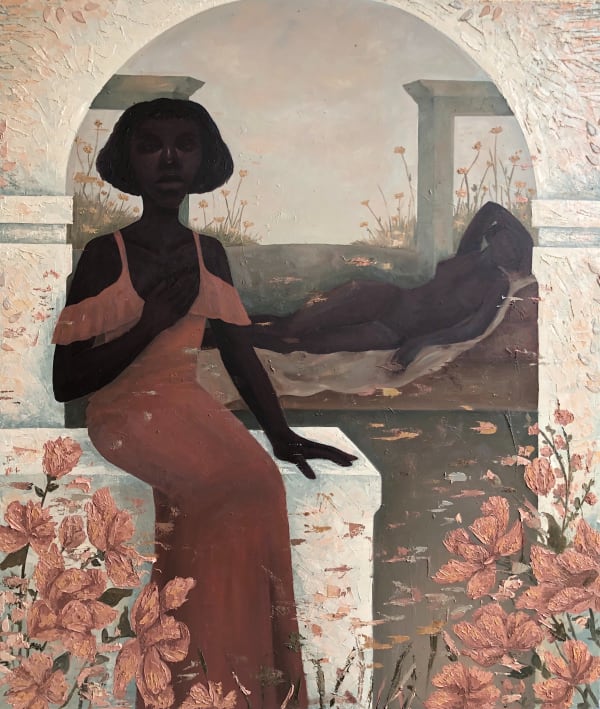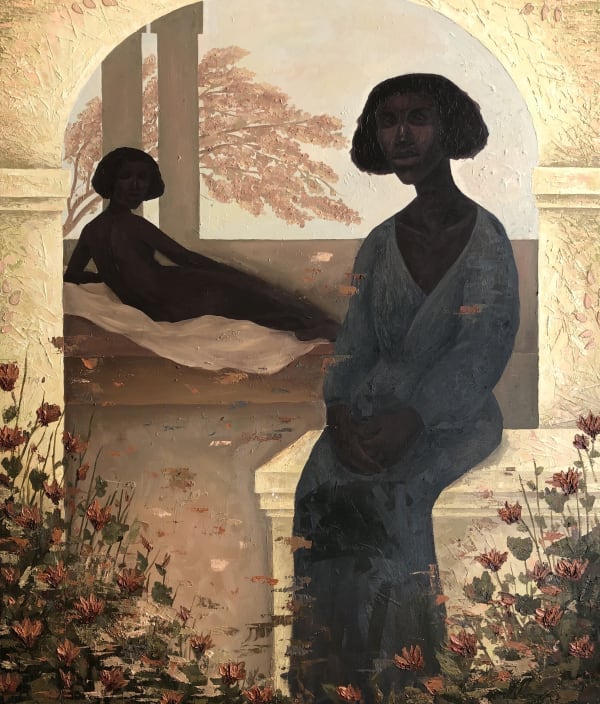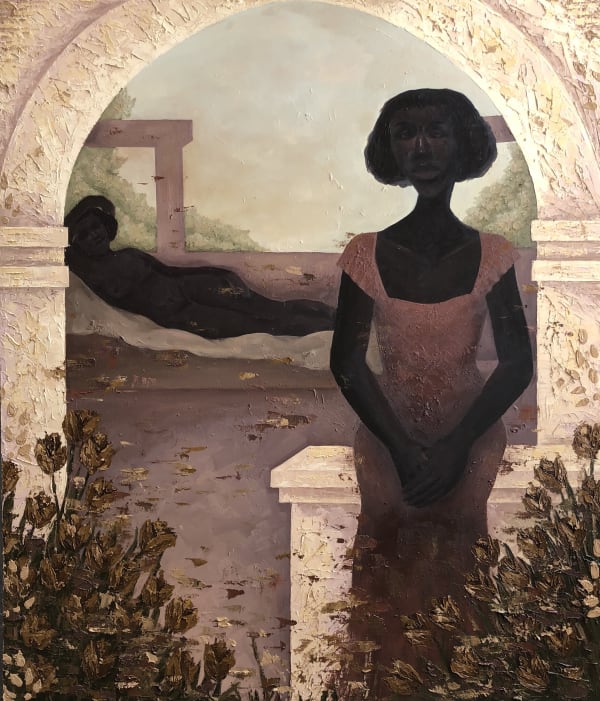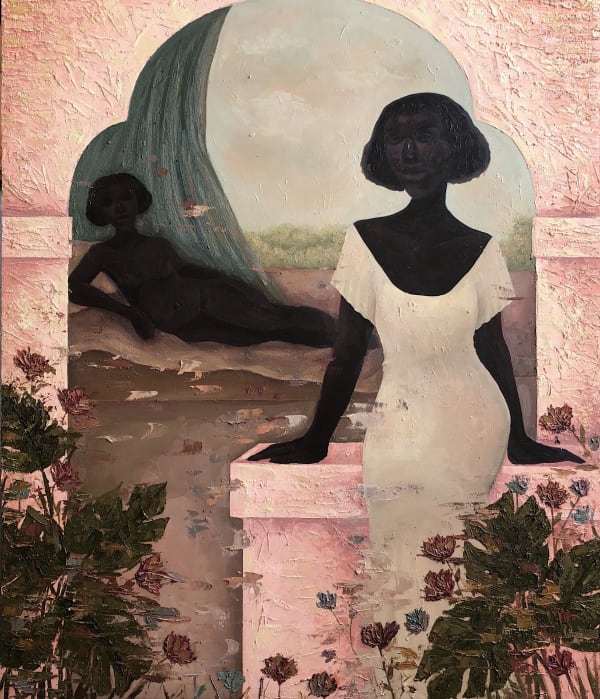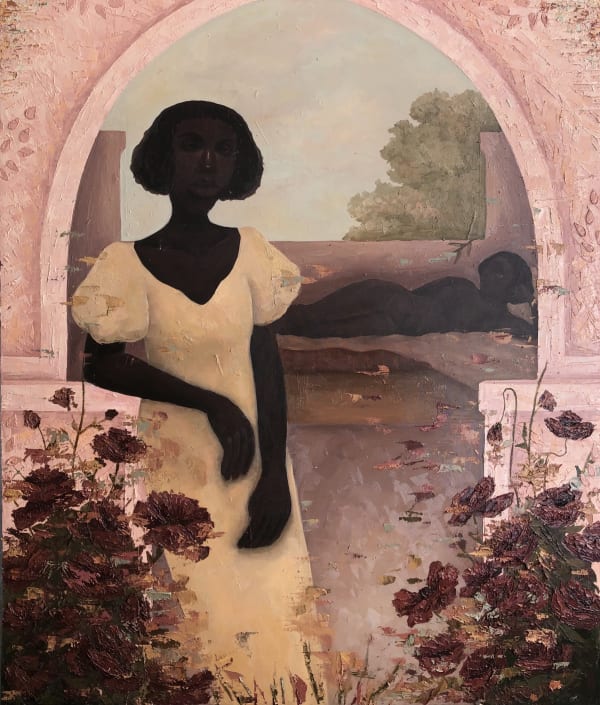Not All Who Wander Are Lost (Wanderlust)' is a continuation of the series 'A Poetry of
Discarded Feelings' which explores the idea of purity culture and the role it plays in restraining and policing the sexual autonomy of women in contemporary society. Referencing personal experiences of blackmail and being shamed for sexual freedom, Nnoli situates her figures in contrast with each other, the hidden against the visible, the covert against the overt, an allusion to the ways women have often had to stifle their sexuality and put up a facade of purity especially in Nigerian societies. Drawing from a culture that places women on a pedestal of innocence and swiftly punishes them when
this image isn't maintained, this body of work challenges harmful and objectifying views around sexuality and the female body. It aims to highlight and subvert the stigma and oppression which contributes to the suppression of the agency of women in traditional and modern societies.
"Not All Who Wander Are Lost (Wanderlust)' focuses on the freedom of finding oneself and gaining autonomy over one's body. The characters in Nnoli's paintings are shown,
slowly but steadily taking on a more relaxed and confident demeanor. Her use of the
odalisque figures reference historical depictions of the female form especially in European Orientalist art from the 19th century. Nnoli's engagement with these figures, done almost exclusively by male artists of the period, highlights the centuries-long objectification of women's bodies for a predominantly male audience while also reclaiming the gaze and agency by challenging and inverting the passive roles associated with these images. The fiqures here exist independently, offering access only on their terms. Her depictions of lush landscapes and vistas also convey a sense of wandering and an exploration of sexuality as opposed to the hiding and stifling that society has conditioned women to do through cultural and religious means.
Partly inspired by and drawing its title from the Lana del Rey song 'Not All Who Wander Are Lost' the body of work considers the nature of wandering, its temporality and liminal qualities. 'Not All Who Wander Are Lost (Wanderlust)' embraces the state of drifting and experimentation as integral to coming into oneself, free from societal pressure and constant policing.

